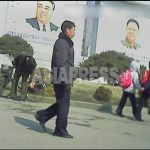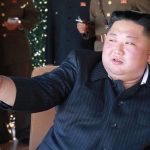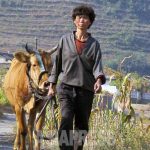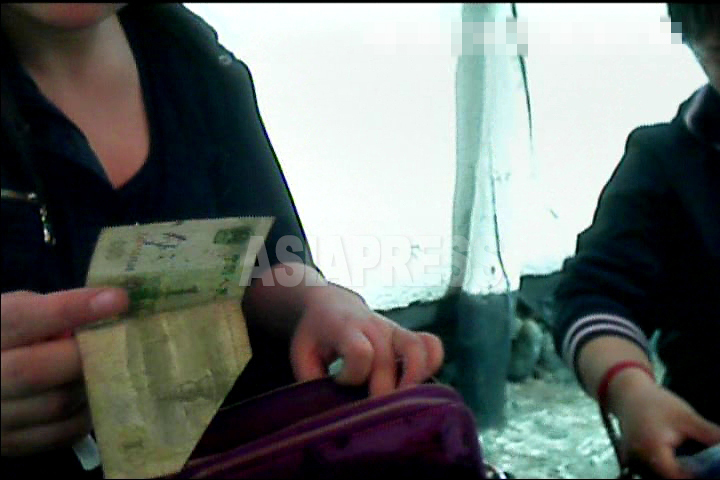
◆ Wage hike leads to more discontent among N. Koreans
From November to December 2023, the North Korean government raised the wages of workers and government employees by more than 10 times compared to the beginning of 2023. "The government is saying that the money should be used for living expenses apart from rations," a reporting partner told ASIAPRESS. However, many people are uneasy. What is Kim Jong-un's goal in raising wages? This is the second article in a three-part series on this issue. (KANG Ji-won / ISHIMARU Jiro)
Since the outbreak of the coronavirus pandemic in 2020, the lives of North Korean urban residents have deteriorated significantly. This is because their cash income has plummeted after authorities closed the borders and severely restricted private economic activities, including crackdowns on commerce and day labor. This explains the high number of deaths from malnutrition and disease among vulnerable groups such as families made up of just mothers and children, and elderly households.
A significant increase in wages (monthly salaries) should be good news. But North Koreans aren't reacting well to the wage hike. As a source in North Hamgyong province told ASIAPRESS:
"They're trying to make it so that if you don't go to work, you can't buy food. The people are becoming slaves to the state."
The "wage hike" is linked to the "food monopoly system" that Kim Jong-un's regime has been pushing for the past three years. To understand how this works, ASIAPRESS has continued to survey the situation in North Hamgyong province, Yanggang province, and North Pyongan province. This article will interpret the results of the survey.
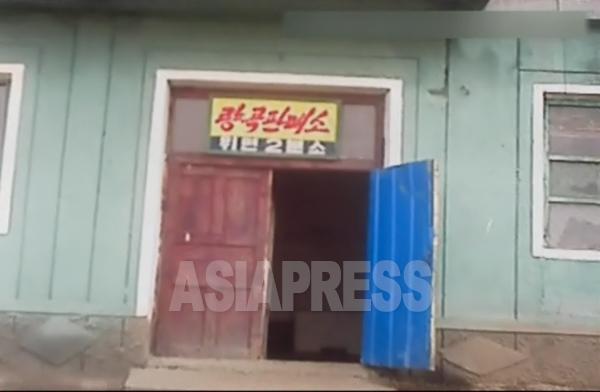
◆ Ban on food sales in markets one step toward state monopoly over food
Since the late 1990s, markets have been the center of food distribution in North Korea. After the pandemic, the government gradually increased its involvement in the buying and selling of food in the markets, reviving state-run grain shops to sell rice and corn at 10 to 20% below market prices.
At the same time, the regime has been aggressively enforcing workplace attendance. Those who went AWOL, those who left their jobs, and those who earned income through other means were punished and criticized. On the other hand, those who went to work were given food rations. It was a classic use of carrots and sticks. Depending on the workplace, the amount of rations distributed to employees ranged from 3 to 10 days' worth of food per month. In addition, teachers, civil servants, police officers, and members of the secret police, were given 70 to 100% of their needs, including rations for their families.
Market food sales increasingly faced restrictions, and were finally banned in January 2023. Sales of food now occur mainly in state-run grain shops. Recently, 5-10 days' worth of food has been sold twice a month, depending on the number of households or families (the market also sells grains other than rice and corn, such as barley, beans, multigrain, and potatoes, as well as processed foods such as cornmeal, noodles, bread, and rice cakes).
In addition, in the first half of December last year, the sales volume at state-run food shop in Hyesan, Yanggang Province, was 4,700 KPW per kilogram and limited to just 4 kilograms of white rice per household, while corn was 2,100 KPW per kilogram and limited to 3 kilograms of corn per household (prices are per kilogram).
To buy all of this would cost 25,100 won, or about 50,000 won per month. Before the pandemic, the wives of laborers who went to work would earn hundreds of thousands to even millions of won a month by doing business activities, but this is now impossible due to restrictions on market activity.
※ 1,000 North Korean won is equal to about 0.1183 US dollars
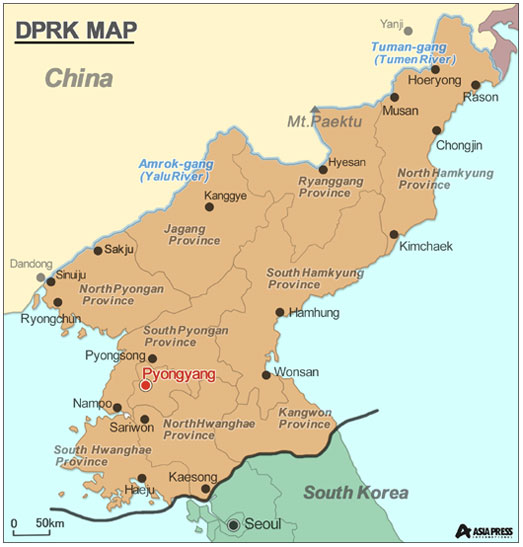
◆ Tying people to their workplaces may be the aim of the regime’s “rule over calories”
As detailed in the first part of this series, at the beginning of last year, the average monthly wage for companies and government employees was generally 1,500-2,500 won for ordinary workers and 4,000-8,000 won for cadres. At the end of last year, wages for the following groups were revised to:
35,000 to 50,000 won for government employees
38,000 to 50,000 won for teachers
35,000 won for ordinary workers in state-owned enterprises
As for the Kim regime's intentions with this wage increase, reporting partners offered the following perspectives:
"A cadre explained that the increased wages are to be used for living expenses other than the rations received at work, which are about the same as the amount of money a family can buy at the 'grain market'. To put it simply, 10 kilograms of food from the worker's rations and 10 kilograms of food from the grain shops are enough to provide people with about 20 kilograms of food per month."
"The point of raising labor wages is to encourage people to work for the state, get paid, and use that money to buy food from the state, rather than buy food at markets or with their own money. But it's not going to work out that well."
"They're trying to change it to a system that prioritizes going to work. The idea is that if you don't go to work, you don't get to eat, because everyone’s earning less and less."
"They rarely let us do business. They also crack down on day labor. People who don't have money think that this wage increase will make it mandatory for them to go to work."
"In reality, there are many people who believe that the wage increase will not help them because their wages will be siphoned off to prepare supplies for support for the army and other projects.”
“Organizational life” is fundamental to North Korea’s control over its people. Through organizations such as schools, workplaces, and social organizations, North Koreans receive ideological and political learning and are mobilized for rallies and volunteer labor. The intensification of “rule over calories,” in which food is used as a tool to get people to work at state-determined locations, is the purpose of this "massive wage increase.” (to 3 >> )
※ ASIAPRESS communicates with its reporting partners through Chinese cell phones smuggled into North Korea.
- <Interview> How was the public execution in Hyesan carried out?…In just four months, three executions have occurred in the city… “We were lined up at our places of work and marched to the execution site”
- <Investigation Inside N. Korea> How is the country’s fishing industry doing? (1) COVID and shrinking fishing grounds major problems…Kim regime’s restrictions on fishing lead some fishermen to financial collapse
- <Inside N. Korea>Speaking to a Border Guard (1) Landmine Burial at the Korea-China Border? “Even soldiers are afraid because they don’t know where they’re buried”
- <Inside N. Korea> A recent report on conditions at farms (1) The harvest is better than last year, but lack of materials remains a serious problem (4 recent photos)
- <Inside N. Korea>Bootleg liquor is an anti-state act The government launches harsh crackdowns, aims to monopolize distribution of alcohol and prevent shortages of grain


